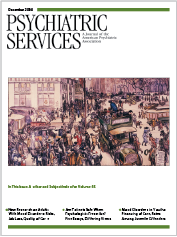The Effect of Living Backwards is a novel about two sisters and a very surreal post-9/11 hijacking that attempts to explore issues around trauma and reality. The story of the hijacking is told in a fragmented series of flashbacks from the point of view of older sister, Alice, who we learn apparently survives the ordeal to become a student at the "Institute of Terrorism Studies" in Lucerne, Switzerland. Alice is cynical, bitter, and emotionally detached from the beginning to the end of the novel; because the story is told in her voice, a detached and disconnected tone pervades it.
One of the instructors at the terrorism institute sets out the idea with which the author is playing in this story: "If you blubber at a movie … are you experiencing actual suffering? No. It's a facsimile of emotion. We're taught to find the antecedents to our adult failures in childhood traumas, and so we spend our lives looking backwards and pointing fingers, rather than bucking up and forging ahead. But what if your childhood was all a big misunderstanding? An elaborate ruse? What does that say about failure? Better yet, what does that say about potential?"
Such a nihilistic view may be intellectually intriguing, but it does not make for engaging storytelling. Alice and sister Edith's childhood stories are told in snippets throughout the novel, yet in the detached way we find out about them and their upbringing as the children of an entomologist and population control activist in many exotic locales, we never warm up to them. Perhaps the story seems unreal from the beginning. Sibling rivalry is another theme throughout the story, yet we never get a sense of the warmth or love that underlies the competition. The sisters' lifelong hobby of collecting "shame stories" from acquaintances provides another of the novel's threads. These are characters' memories, often of having a sexual relationship with someone out of pity, told to Edith after being sexually teased by her to reveal them. Stories of different characters incidental to the main narrative are interspersed throughout the hijacking narrative, without clear addition to the story except to underline the disconnected, dissociated tone of the whole.
As the story unfolds and the hijacking unravels into unreality, the reader remains strangely undisturbed and aloof, because the whole thing feels hollow and unreal from the start. Certainly, we are spared the horror and terror we might have felt had we believed in the characters and the story. However, the prescription for life set out by the terrorism professor leaves much to be desired. In the end, we are reaffirmed in the knowledge that dissociation, denial, and detachment are ultimately unhealthy strategies for coping with trauma. They also make for unsatisfying reading.

